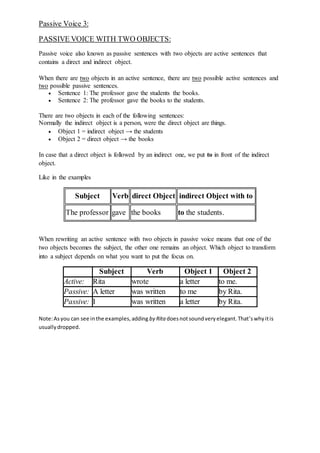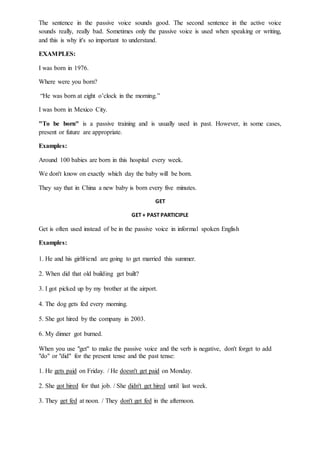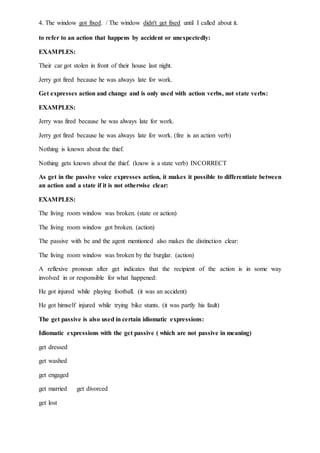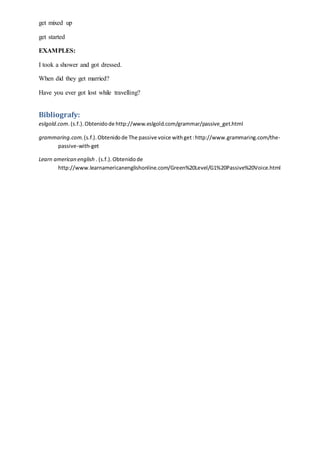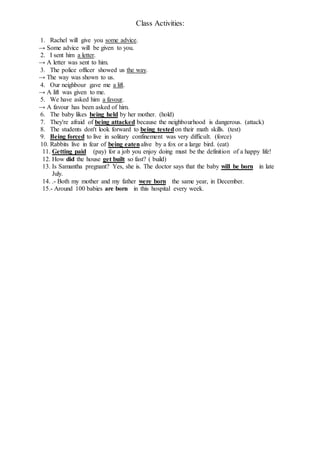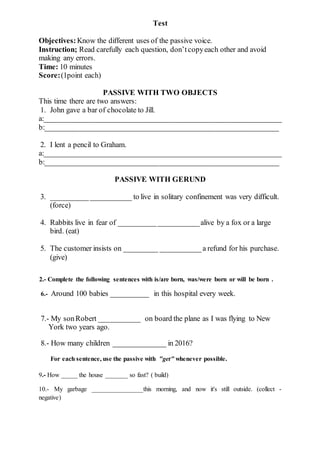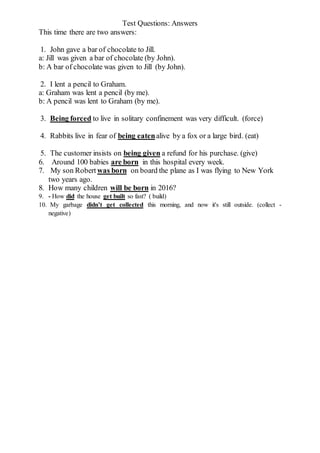The document discusses different uses of the passive voice, including with two objects, gerunds, "to be born", and "get". It provides examples of active and passive sentences with two objects, where one object becomes the subject. Gerunds are discussed as taking an "-ing" form but not being verbs. Common phrases using "be born" and "get" in the passive are examined, including how "get" can replace "be" for a more informal style. Sample test questions are provided to assess understanding of these passive voice constructions.
